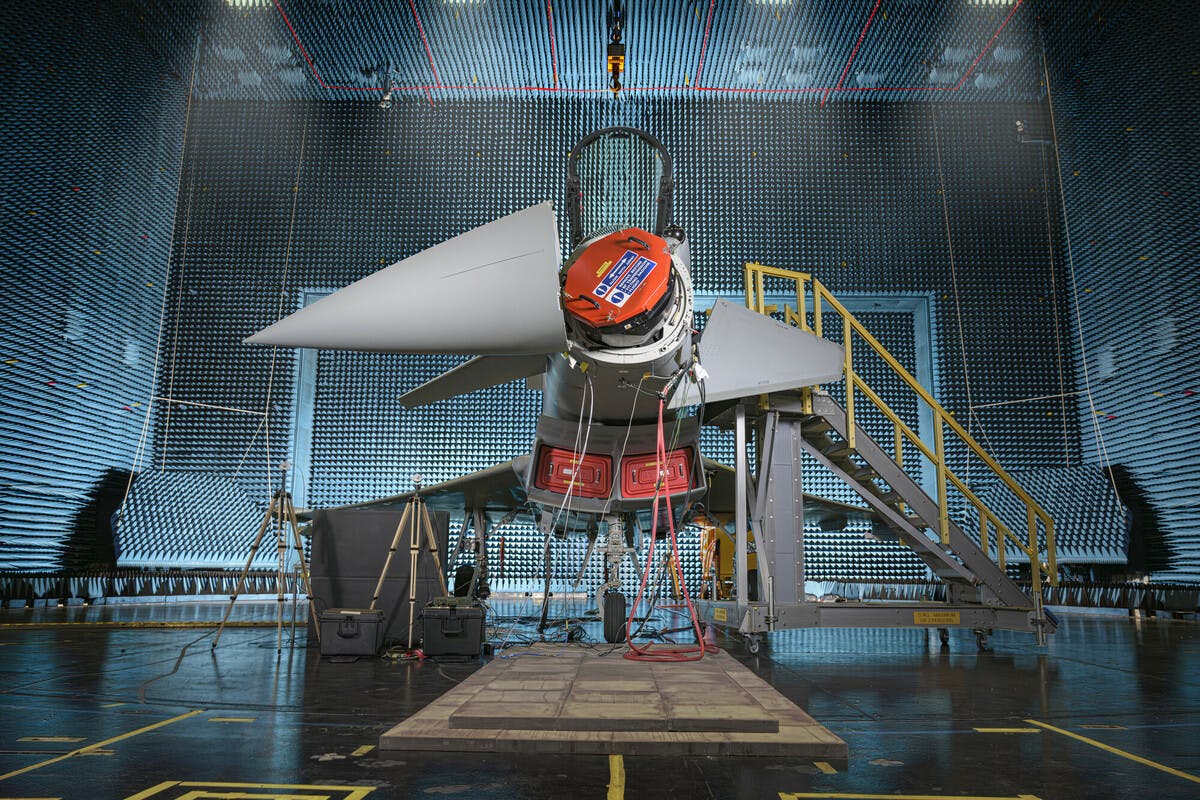An advanced electronic warfare radar system developed for the Royal Air Force (RAF) has successfully flown for the first time, marking a key milestone in the ongoing enhancement of the UK Typhoon fleet.
The European Common Radar System Mark 2 (ECRS Mk2), designed to help RAF pilots locate, identify, and suppress enemy air defences, was operated aboard a UK Typhoon test and evaluation aircraft at BAE Systems’ facility in Lancashire.
The new radar, developed by Leonardo UK, will not only perform traditional radar functions such as search and targeting but will also provide enhanced electronic warfare capabilities. This includes the ability to locate and jam adversary radar systems, giving the Typhoon a significant edge in air combat while remaining out of the reach of enemy defences.
Air Commodore Nick Lowe, Head of Capability Delivery Combat Air and Typhoon Senior Responsible Officer for the RAF, commented on the successful flight:
“Evolution of Typhoon’s air combat capability is paramount to ensure it continues to deter potential aggressors, defend our nation and defeat our adversaries wherever we need to fly and fight, whether for the UK or in our staunch support to the NATO alliance. This first flight of this ECRS Mk2 prototype new radar in the test aircraft is a positive step towards ensuring this.”
Andy Holden, Radar Delivery Director at BAE Systems, added:
“The development of Typhoon’s radar supports 600 jobs across the UK’s combat air industry. Programmes such as the ECRS Mk2 ensure the UK retains a sovereign capability to develop and integrate cutting-edge systems into frontline combat aircraft such as Typhoon. Through this work, we’re directly supporting critical know-how and sustaining hundreds of highly-skilled jobs.”
Tim Bungey, Chief Engineer for ECRS Mk2 at Leonardo UK, highlighted the technological advancements:
“In parallel with the trials, the radar’s production design has also been progressing apace. The development of the ECRS Mk2 is fully using the UK’s world-class radar design skills. Over the past few months, its processor, receiver and antenna power supply and control units have all been re-engineered from the prototype design to further enhance the capacity, capability, and performance of the Mk2 system in alignment with the new antenna and electronic warfare capability.”

